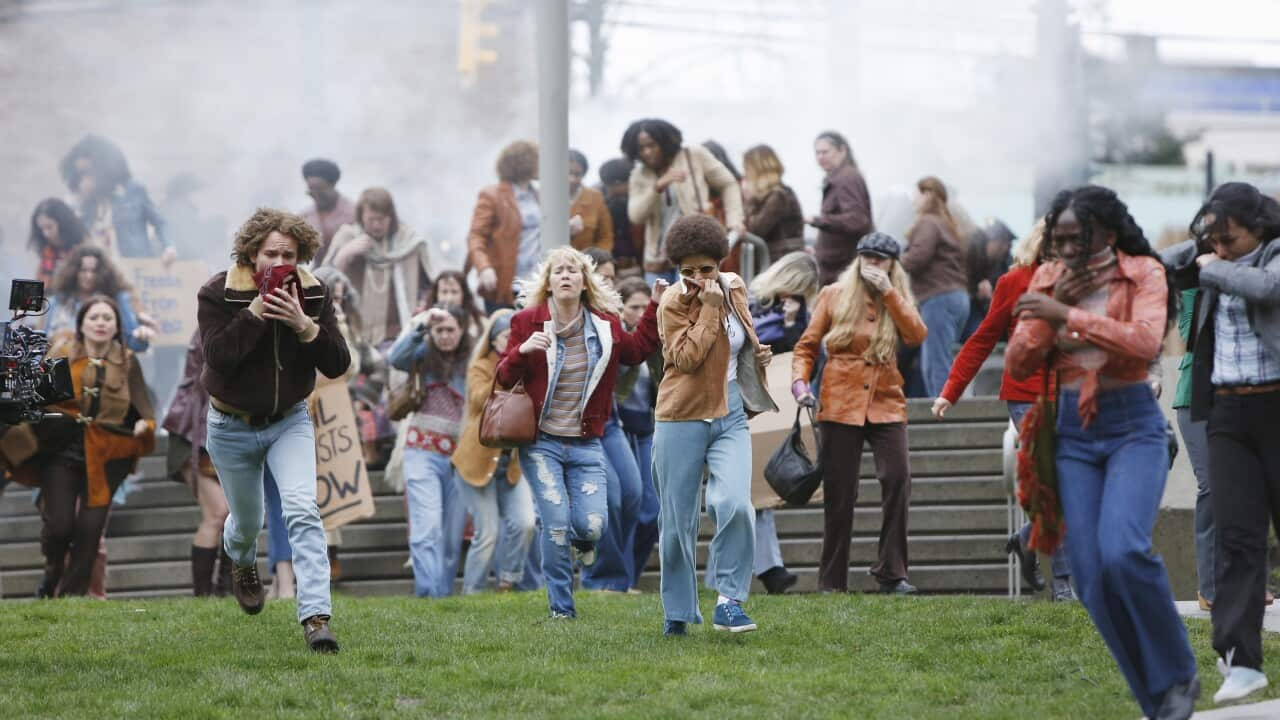SBS Viceland’s new road-trip reality series Twiz and Tuck defies traditional categorisation, which is precisely what makes it such valuable - if not slightly unpredictable - television.
When best friends Tuck Mayo (a trans man) and Twiz Rimer (a gender variant artist) decide to drive from New York City to Los Angeles, it’s under the pretence of ticking off Tuck’s bucket list ahead of his upcoming wedding. He wants to workout with a bodybuilder in Michigan, visit his ex-boyfriend in Iowa, buy a dog in Illinois, ride a bull in the desert, and scout wedding venues in Los Vegas - all before visiting his mother in California.
However, when Tuck’s engagement unravels on camera, it becomes clear that we’re witnessing a personal journey more profound than the show’s synopsis would have us believe. What follows is a six-part unscripted exercise in catharsis, intimacy and friendship; made all the more fascinating by its candid trans/non-binary lens and the pair’s close mutual friendship with the show’s director and cinematographer, Elvira Lind.
“We forgot she was there,” Tuck tells me from his California home. “We were all such good friends, so we were just having fun with it.”

Twiz (L) and Tuck (R). Source: SBS VICELAND
While presenting like a runaway bucks party on steroids (or, perhaps, injections of testosterone), conversation between the show’s namesakes is at times incredibly insightful, particularly from Twiz, who has no qualms opening up about their complex relationship with gender and sexuality.
“I find a lot of queer people move to cities to find, hopefully, a safe place,” says Twiz (which, if you were wondering, is short for Twizzler) from the rooftop of their Brooklyn home in the first episode of the series.
“I thought it (being trans) was only male-to-female when I was younger,” they add. “I met a trans guy in college and was like, whoa, that’s an option? I never thought I was trans, but that was the first time I thought that… my gender isn’t male or female.”
They turn to their friend - “how would you describe it?”
“It’s not necessarily male or female, it’s dude,” responds Tuck. “You’re like, the dude.”
“I have a vagina,” Twiz later announces matter-of-factly, holding a bottle of champagne and dressed in nothing but a towel. “But I love having a male gender and a lesbian sexuality.”

Source: SBS VICELAND
With it’s no-bullshit approach to political correctness and gender, Twiz & Tuck marks an intriguing and timely intersection between the reality television genre and classic fly-on-the-wall documentary filmmaking, broadening the churned-out ‘budget telly’ bracket to encompass voices more diverse and nuanced than those of the Kardashians and Real Housewives.
“To be honest, I didn’t think it would be a growing experience for me,” Tuck recalls of his decision to participate in the show. “I thought it would be a fun road-trip where I could, you know, make some money and do some cool stuff. But the trip made me realise I was living this life that I was super unhappy with.”
He’s talking about the life he shared with his ex-fiance, who, we learn on the show, disapproved of Tuck’s love for “collecting animals” and had some initial reservations about the show’s production.
“However, I ended up exploring and having a tonne of fun. It was an amazing, at times really depressing experience.”
When asked what he hopes audiences take away from the show, Tuck pauses. Unlike Viceland’s Gaycation, it’s clear Twiz and Tuck wasn’t made to serve or educate a particular community, and he’s not about to pretend otherwise. However, it’s this lack of agenda which makes it refreshing, even compelling viewing.
“I think the thing about Twiz and I is that we’re super comfortable with ourselves,” Tuck eventually says.


